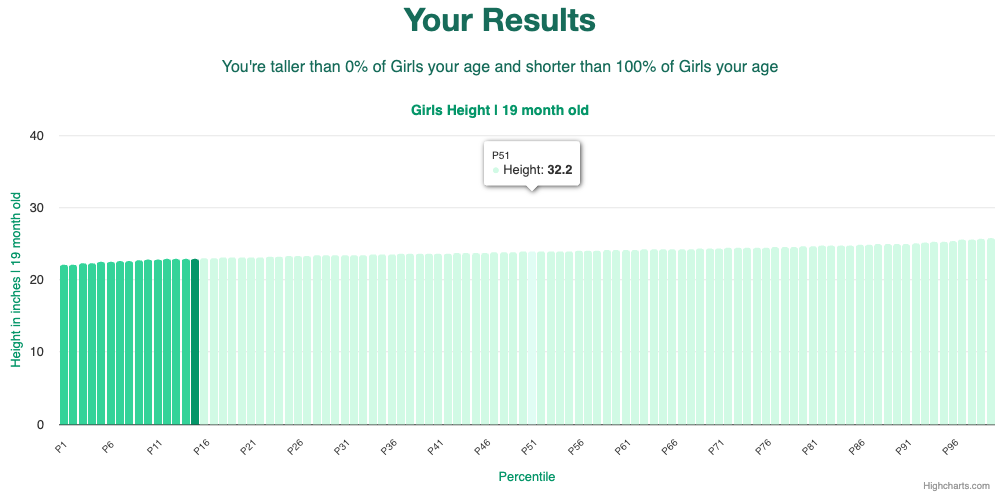Girls Weight chart in lbs for Toddlers 19 month old

General Summary: 19 month old girls weight
In most cases, weight measurements for 19 month old girls will be in the range between 18 and 29 lbs. The average weight for 19 month old girls is 23 lbs, according to the CDC and anonymized data from users.
All Results
Enter your weight measurements above to see how they compare
So far, we have recorded [0] weight measurements for 19-month-old girls on LifeMeasure!
(chart updates daily)
See more ages